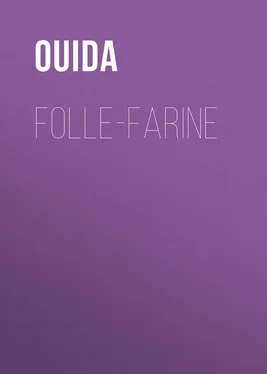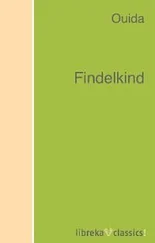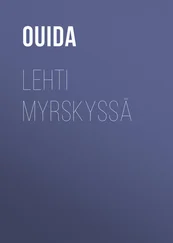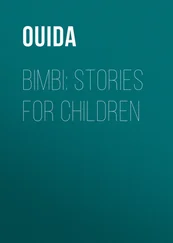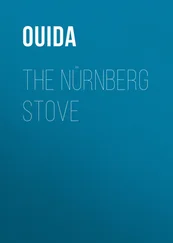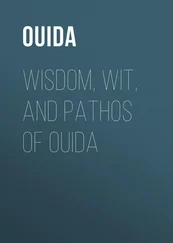Ouida - Folle-Farine
Здесь есть возможность читать онлайн «Ouida - Folle-Farine» — ознакомительный отрывок электронной книги совершенно бесплатно, а после прочтения отрывка купить полную версию. В некоторых случаях можно слушать аудио, скачать через торрент в формате fb2 и присутствует краткое содержание. Жанр: foreign_prose, literature_19, foreign_antique, на английском языке. Описание произведения, (предисловие) а так же отзывы посетителей доступны на портале библиотеки ЛибКат.
- Название:Folle-Farine
- Автор:
- Жанр:
- Год:неизвестен
- ISBN:нет данных
- Рейтинг книги:5 / 5. Голосов: 1
-
Избранное:Добавить в избранное
- Отзывы:
-
Ваша оценка:
- 100
- 1
- 2
- 3
- 4
- 5
Folle-Farine: краткое содержание, описание и аннотация
Предлагаем к чтению аннотацию, описание, краткое содержание или предисловие (зависит от того, что написал сам автор книги «Folle-Farine»). Если вы не нашли необходимую информацию о книге — напишите в комментариях, мы постараемся отыскать её.
Folle-Farine — читать онлайн ознакомительный отрывок
Ниже представлен текст книги, разбитый по страницам. Система сохранения места последней прочитанной страницы, позволяет с удобством читать онлайн бесплатно книгу «Folle-Farine», без необходимости каждый раз заново искать на чём Вы остановились. Поставьте закладку, и сможете в любой момент перейти на страницу, на которой закончили чтение.
Интервал:
Закладка:
She was friendless and desolate; she was ill fed, she was heavily tasked; she toiled without thanks; she was ignorant of even so much knowledge as the peasants about her had; she was without a past or a future, and her present had in it but daily toil and bitter words; hunger, and thirst, and chastisement.
Yet for all that she sang;—sang because the vitality in her made her dauntless of all evil; because the abundant life opening in her made her glad in despite of fate; because the youth, and the strength, and the soul that were in her could not utterly be brutalized, could not wholly cease from feeling the gladness of the sun, the coursing of the breeze, the liberty of nature, the sweet quick sense of living.
Before long she reached the spot where the old man Marcellin was breaking stones.
His pile was raised much higher; he sat astride on a log of timber and hammered the flints on and on, on and on, without looking up; the dust was still thick on the leaves and the herbage where the tramp of the people had raised it; and the prayers and the chants had failed as yet to bring one slightest cloud, one faintest rain mist across the hot unbroken azure of the skies.
Marcellin was her only friend; the proscribed always adhere to one another; when they are few they can only brood and suffer, harmlessly; when they are many they rise as with one foot and strike as with one hand. Therefore, it is always perilous to make the lists of any proscription overlong.
The child, who was also an outcast, went to him and paused; in a curious, lifeless bitter way they cared for one another; this girl who had grown to believe herself born of hell, and this man who had grown to believe that he had served hell.
With the bastard Folle-Farine and with the regicide Marcellin the people had no association, and for them no pity; therefore they had found each other by the kinship of proscription; and in a way there was love between them.
"You are glad, since you sing!" said the old man to her, as she passed him again on her homeward way, and paused again beside him.
"The birds in cage sing," she answered him. "But, think you they are glad?"
"Are they not?"
She sat down a moment beside him, on the bank which was soft with moss, and odorous with wild flowers curling up the stems of the poplars and straying over into the corn beyond.
"Are they? Look. Yesterday I passed a cottage, it is on the great south road; far away from here. The house was empty; the people, no doubt, were gone to labor in the fields; there was a wicker cage hanging to the wall, and in the cage there was a blackbird. The sun beat on his head; his square of sod was a dry clod of bare earth; the heat had dried every drop of water in his pan; and yet the bird was singing. Singing how? In torment, beating his breast against the bars till the blood started, crying to the skies to have mercy on him and to let rain fall. His song was shrill; it had a scream in it; still he sang. Do you say the merle was glad?"
"What did you do?" asked the old man, still breaking the stones with a monotonous rise and fall of his hammer.
"I took the cage down and opened the door."
"And he?"
"He shot up in the air first, then dropped down amidst the grasses, where a little brook which the drought had not dried, was still running; and he bathed and drank and bathed again, seeming mad with the joy of the water. When I lost him from sight he was swaying on a bough among the leaves over the river; but then he was silent!"
"And what do you mean by that?"
Her eyes clouded; she was mute. She vaguely knew the meaning it bore to herself, but it was beyond her to express it.
All things of nature had voices and parables for her, because her fancy was vivid and her mind was dreamy; but that mind was still too dark, and too profoundly ignorant, for her to be able to shape her thoughts into metaphor or deduction.
The bird had spoken to her; by his silence as by his song; but what he had uttered she could not well utter again. Save, indeed, that song was not gladness, and neither was silence pain.
Marcellin, although he had asked her, had asked needlessly; for he also knew.
"And what, think you, the people said, when they went back and found the cage empty?" he pursued, still echoing his words and hers by the ringing sound of the falling hammer.
A smile curled her lips.
"That was no thought of mine," she said carelessly. "They had done wickedly to cage him; to set him free I would have pulled down their thatch, or stove in their door, had need been."
"Good!" said the old man briefly, with a gleam of light over his harsh lean face.
He looked up at her as he worked, the shivered flints flying right and left.
"It was a pity to make you a woman," he muttered, as his keen gaze swept over her.
"A woman!" She echoed the words dully and half wonderingly; she could not understand it in connection with herself.
A woman; that was a woman who sat in the sun under the fig-tree, working her lace on a frame; that was a woman who leaned out of her lattice tossing a red carnation to her lover; that was a woman who swept the open porch of her house, singing as she cleared the dust away; that was a woman who strode on her blithe way through the clover, carrying her child at her breast.
She seemed to have no likeness to them, no kindred with them; she a beast of burden, a creature soulless and homeless, an animal made to fetch and carry, to be cursed and beaten, to know neither love nor hope, neither past nor future, but only a certain dull patience and furious hate, a certain dim pleasure in labor and indifference to pain.
"It was a pity to make you a woman," said the old man once more. "You might be a man worth something; but a woman!—a thing that has no medium; no haven between hell and heaven; no option save to sit by the hearth to watch the pot boil and suckle the children, or to go out into the streets and the taverns to mock at men and to murder them. Which will you do in the future?"
"What?"
She scarcely knew the meaning of the word. She saw the female creatures round her were of all shades of age, from the young girls with their peachlike cheeks to the old crones brown and withered as last year's nuts; she knew that if she lived on she would be old likewise; but of a future she had no conception, no ideal. She had been left too ignorant to have visions of any other world hereafter than this one which the low lying green hills and the arc of the pale blue sky shut in upon her.
She had one desire, indeed—a desire vague but yet fierce—the desire for liberty. But it was such desire as the bird which she had freed had known; the desire of instinct, the desire of existence only; her mind was powerless to conceive a future, because a future is a hope, and of hope she knew nothing.
The old man glanced at her, and saw that she had not comprehended. He smiled with a certain bitter pity.
"I spoke idly," he said to himself; "slaves cannot have a future. But yet–"
Yet he saw that the creature who was so ignorant of her own powers, of her own splendors, of her own possibilities, had even now a beauty as great as that of a lustrous Eastern-eyed passion-flower; and he knew that to a woman who has such beauty as this the world holds out in its hand the tender of at least one future—one election, one kingdom, one destiny.
"Women are loved," she said, suddenly; "will any one love me?"
Marcellin smiled bitterly.
"Many will love you, doubtless—as the wasp loves the peach that he kisses with his sting, and leaves rotten to drop from the stem!"
She was silent again, revolving his meaning; it lay beyond her, both in the peril which it embodied from others, and the beauty in herself which it implied. She could reach no conception of herself, save as what she now was, a body-servant of toil, a beast of burden like a young mule.
Читать дальшеИнтервал:
Закладка:
Похожие книги на «Folle-Farine»
Представляем Вашему вниманию похожие книги на «Folle-Farine» списком для выбора. Мы отобрали схожую по названию и смыслу литературу в надежде предоставить читателям больше вариантов отыскать новые, интересные, ещё непрочитанные произведения.
Обсуждение, отзывы о книге «Folle-Farine» и просто собственные мнения читателей. Оставьте ваши комментарии, напишите, что Вы думаете о произведении, его смысле или главных героях. Укажите что конкретно понравилось, а что нет, и почему Вы так считаете.
